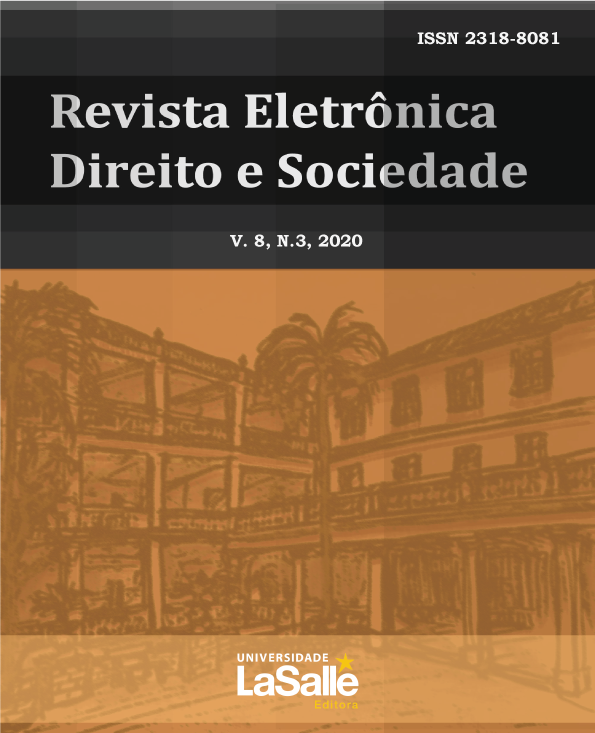Brazilian judiciary and its margins: a brief proposal to think about the discription of the current judicial decision model in the production of illegalisms
DOI:
https://doi.org/10.18316/redes.v8i3.6196Keywords:
Interpretation, Judicial Voluntarism, Ethnography of the State, Judiciary Branch.Abstract
The purpose of the text is to emphasize the political character of the jurisdiction, in order to point to a possibility of reading the judicial voluntarism from the limits of the judicial decision. We deal initially with the discretionary nature as a space for the exercise of the political power of the Judiciary for the production of rules, highlighting the (also) political character of the judicial decision in the conception of Hans Kelsen. Soon after, we approach the anthropology of the margins in the perspective of Deborah Poole and Veena Das, with the objective of trying to recognize in this theory sufficient contribution for a new reading of the judicial discretion from the practices of the members of the judiciary in everyday reality. Once the essential points were highlighted, an analytical comparison was made with the judicial voluntarism denounced in the previous topic, thus establishing a better reflection on the possibility of a criticism of this practice from the lens that allows recognizing the judiciary for its practices and its omissions in concrete reality.
Downloads
Published
Issue
Section
License
Authors who submit their manuscripts for publication in the “REDES” Magazine agree to the following terms:
The authors claim to be aware that they retain copyright by giving “REDES” the right to publish.
The authors declare to be aware that the work submitted will be licensed under the Creative Commons Non-Commercial Attribution License which allows article sharing with acknowledgment of authorship and publication in this journal.
The authors declare to be aware that by virtue of the articles published in this journal have free public access.
The authors declare, under the penalty of the law, that the text is unpublished and original and that they are aware that plagiarism has been identified, plagiarized authors will be informed - willingly, to take legal action in the civil and criminal sphere - and, plagiarists will have their access to the magazine blocked.
The authors state that - in case of co-authoring - all contributed significantly to the research.
Authors are obliged to provide retractions and (or) corrections of errors in case of detection.
The authors are obliged not to publish the text submitted to “REDES” in another electronic journal (or not).
The Electronic Journal Law and Society - REDES - is licensed under a Creative Commons License. Attribution-NonCommercial 4.0 International.Based on work available at "http://revistas.unilasalle.edu.br/index.php/redes/about/submissions#copyrightNotice".
Permissions in addition to those granted under this license may be available at http://creativecommons.org/.

